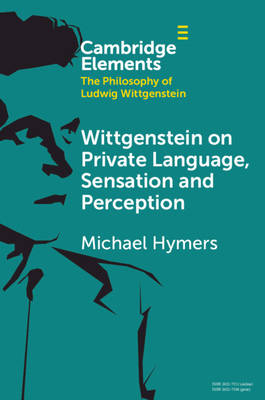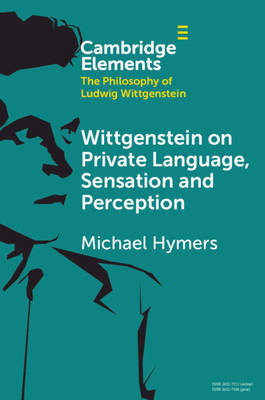
- Afhalen na 1 uur in een winkel met voorraad
- Gratis thuislevering in België vanaf € 30
- Ruim aanbod met 7 miljoen producten
- Afhalen na 1 uur in een winkel met voorraad
- Gratis thuislevering in België vanaf € 30
- Ruim aanbod met 7 miljoen producten
Zoeken
Wittgenstein on Private Language, Sensation and Perception
Michael Hymers
€ 33,45
+ 66 punten
Uitvoering
Omschrijving
Wittgenstein's critique of private language in the Philosophical Investigations does not attempt to refute the possibility of a private sensation-language, let alone in any one argument, as has often been thought. Nor does it aim to establish that language is intrinsically social. Instead, PI §§243-315 presents a series of arguments, suggestions, questions, examples and thought-experiments whose purpose is to undermine the temptation to think of sensations and perceptual experiences as private objects occupying a private phenomenal space. These themes are clear developments of Wittgenstein's earlier critique of sense-datum theories (1929-1936) and his insight that naming is more complex than he had assumed in the Tractatus.
Specificaties
Betrokkenen
- Auteur(s):
- Uitgeverij:
Inhoud
- Aantal bladzijden:
- 86
- Taal:
- Engels
- Reeks:
Eigenschappen
- Productcode (EAN):
- 9781108931175
- Verschijningsdatum:
- 23/10/2025
- Uitvoering:
- Paperback
- Formaat:
- Trade paperback (VS)
- Afmetingen:
- 152 mm x 229 mm
- Gewicht:
- 127 g

Alleen bij Standaard Boekhandel
+ 66 punten op je klantenkaart van Standaard Boekhandel
Beoordelingen
We publiceren alleen reviews die voldoen aan de voorwaarden voor reviews. Bekijk onze voorwaarden voor reviews.







